My soothing ginger chicken soup will warm your soul and nourish your body. Food is one key to a stronger immune system, but it isn't the only one. Along with this vegetable packed soup I share ways to achieve a stronger immune system.
This post is sponsored by Wellmune® through Kitchen PLAY. This post was written in conjunction with Wellmune and Kitchen PLAY

Food plays an important part in keeping your body healthy. That's why I have created this delicious ginger chicken soup for immunity support. Packed with immune supporting foods such as chicken, broccoli, garlic, ginger, turmeric, spinach, and lemon.
It's a nutritious powerhouse of flavour that offers you a hug from the inside. Sadly my soup, as delicious as it is, won't keep your immune system in tip top condition all by itself.
But how do you keep your immune health primed and ready to fight when needed? I deep dive into some ways you can strengthen your immune system, including supporting it with Wellmune®, a superior yeast-derived beta glucan.
Sara xxx
What's in this post
What is the Immune System?
We all know we have one, but what exactly is your immune system? Your body's immune system is not just one thing. It's made up of organs, cells, and chemicals that work together to fight infection. It blows my mind knowing that my immune system remembers most of every microbe it has ever defeated.
Supporting your body's immunity won't prevent you from getting infections or catching viruses. What it will do is make sure your body's immune response is functioning at its prime when necessary.
Parts of the immune system
- White Blood Cells: Your body's front-line forces. Some of your white blood cells circulate through the body on patrol and ready to respond to bacteria, viruses, parasites, and fungi.
- Lymphatic System: A network of tissues, vessels, and organs that are the structural backbone of the immune system.
- Lymph (lymphatic fluid): Contains immune cells and immune proteins necessary for our immune system to work.
- Lymphoid Organs (spleen, thymus, lymph node):
~ Spleen: An organ that filters blood to remove microbes and destroys old/damaged red blood cells. Plus makes the disease-fighting components of the immune system (including antibodies and lymphocytes).
~ Thymus: Filters and monitors the body's blood content, plus makes the white blood cells called T-cells.
~ Lymph Nodes: Serve as headquarters of the immune system providing the space and networking opportunity for white blood cells to "talk" to each other about what they have found while on patrol in the body. - Skin: The largest organ of your body that secretes oil with bacteria-killing properties, and provides a physical barrier to germs that want to enter the body.
- Lungs: Traps foreign particles that (fingers crossed) we eventually cough up.
- Digestive Tract: It contains antibodies and stomach acid that can kill most microbes.
- Antibodies: They recognise foreign microbes in your body and mark them for destruction.
- Complement System: Proteins that complement the work done by antibodies.
- Bone Marrow: Produces white and red blood cells.
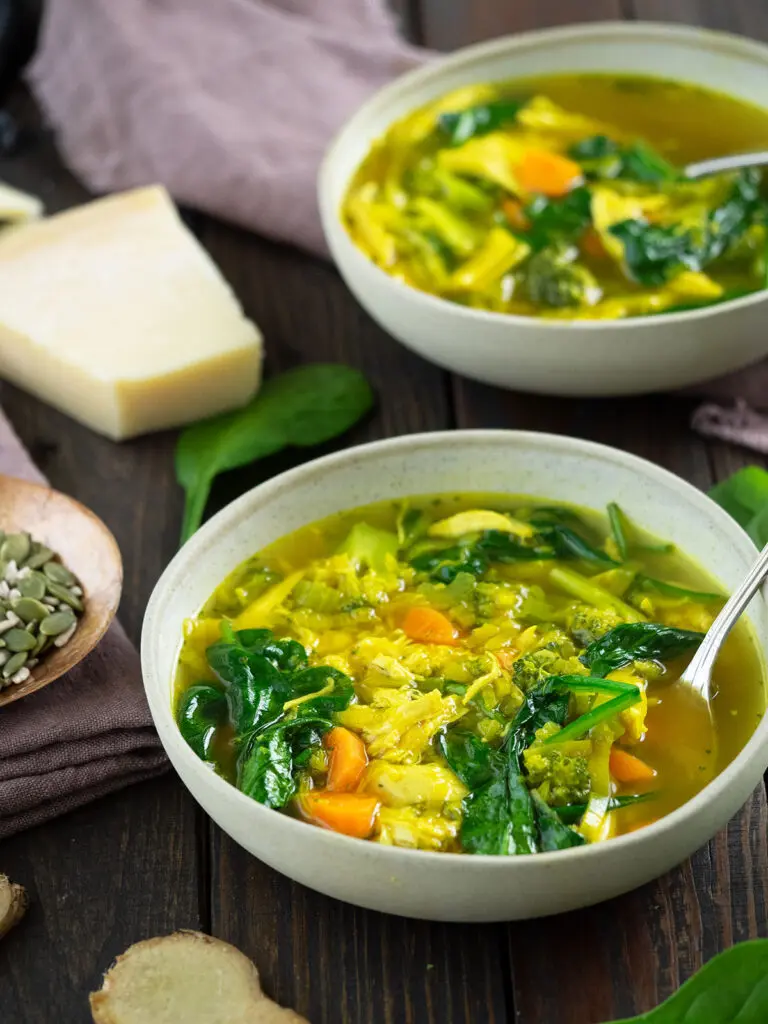
Immune Supporting Nutrients
You may already be familiar with some of these nutrients when it comes to maintaining your immune health. Most of them are readily available through eating a balanced diet.
Now you can add Wellmune's yeast beta glucans to the top of the list, as a science-backed immune support champion in your daily routine.
- Beta-Carotene: Is a carotenoid and antioxidant which is found in fresh fruits and vegetables. The body converts it into vitamin A.
- Vitamin C: Needed for the body to form blood vessels, cartilage, muscle, and collagen in bones. Plus it's vital to the body's healing process.
- Vitamin E: Has antioxidant properties and protects cells against free radicals.
- Vitamin D: The "sunshine" vitamin that keeps bones, teeth and muscles healthy.
- Zinc: Found in our cells throughout our bodies it helps fight bacteria and viruses. It also makes proteins and DNA in our cells.
- Digestible Fibre: Helps waste to move smoothly through and out of our body, and important to good gut health.
- Yeast Beta Glucans: Specific types of baker's yeast have immune supporting beta glucans in their cell walls. In this natural form, beta glucans are "masked" and our body can't recognise them. The baker's yeast needs to be processed to have the mask "taken off" in order for it to support our immune system.
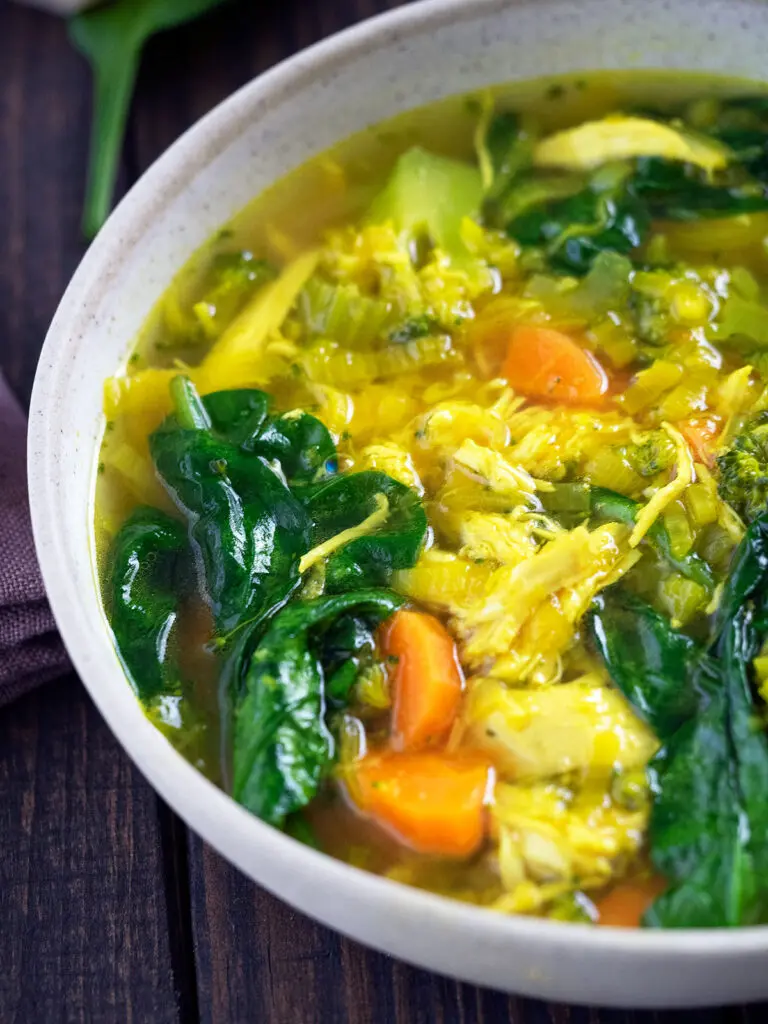
Wellmune® Yeast Beta Glucans
Wellmune is a patented and award-winning superior yeast beta glucan used by food, beverage, and supplement brands. Brands use it to create products that provide you and me with immune health support.
What are Beta Glucans?
Beta glucans are found in some foods. The food that the beta glucan comes from determines its function in our bodies. The specific beta glucans that are integral to supporting immune health are derived from baker's yeast (yeast beta glucans).
Our bodies don't make yeast beta glucans naturally and the only way we can get them is through nutritional sources.
Why add Wellmune Yeast Beta Glucans to your wellness routine?
Let's face facts, nobody is perfect. Busy lifestyles, stress, travel and other contributing factors mean we could all do with a helping hand to stay on top of our immune health game. Wellmune provides that helping hand.
The difference with Wellmune is that it is a yeast beta glucan that has been well-studied to understand how it works in the body to help support immune health. When taken daily, as a supplement, or in a functional food or beverage formulated with this unique yeast beta glucan, clinical research shows that Wellmune helps to support the innate immune system by priming it to be ready to react effectively rather than overstimulating it.
It's a bit like having the keys in the ignition of your car ready to turn on when you need to go instantly.
Why Wellmune®?
Wellmune is a superior yeast derived beta glucan (Saccharomyces Cerevisiae). No other yeast beta glucan of this type has Wellmune's immune supporting benefits.
It has been scientifically backed with peer-reviewed clinical research studies. These studies have shown that not only can Wellmune strengthen general immune health, but along with being the best-studied yeast beta glucan ingredient, Wellmune is the one that showed the best results.
Also:
~ A daily dose of Wellmune is a next-level approach to ensure you continually support your immune system.
~ Wellmune is safe for a wide range of people from kids to older adults, to people facing lifestyle stress.
~ Naturally gluten free, Wellmune is non-allergenic.
Where can I find products containing Wellmune®?
There are hundreds of products on the market around the world that have been fortified with Wellmune. More and more Australian brands are adding it to their products, especially as consumers get wise to its benefits.
Whilst researching I discovered that popular Australian brand Bickford's have included it as the key immunity support ingredient in their Immunity Support Juice (available at supermarkets).
If a product is made with Wellmune it will be clearly stated on the label. If in doubt check the nutritional information on the packet.
As well as food and beverage products it is included in a wide variety of supplement products on the market.
Sunshine, Rest & Reduce Stress
Just as important as exercise is getting decent sleep. While we sleep our bodies are hard at work. We need this downtime in order for our cells to repair, energy restoration, and for release of important molecules like hormones and proteins.
Take a walk in the Sunshine
Go for a daily walk outside and you're covering three key elements to supporting your immune system. Exercise not only keeps you fit, but it also helps keep your weight down and boosts your mental wellbeing.
Findings supported by the CSIRO show that obesity affects how our immune system works. Excess weight can cause chronic low-grade inflammation in your fat tissue. If your immune system is constantly fighting this inflammation it won't be in prime condition to fight other infections.
A lot of people are deficient in Vitamin D; I'm one of them! It isn't found naturally in many foods (unless fortified). A sure fire way of getting your daily dose is a walk in the sunshine.
Rest and De-Stress
Just as important as exercise is getting decent sleep. While we sleep our bodies are hard at work. We need this downtime in order for cells to repair, energy restoration, and release molecules like hormones and proteins.
Our immune system does not work alone. Welcome to the party central nervous system and stress system! Studies have shown that people can have a reduced immunity during times of stress. Try to avoid stress triggers and take time out to breath.
Good Gut Health
Did you know that 70-80% of your immune cells live in your gut? That really brings home the importance of good gut health. Try to keep you gut health on track by including probiotics and prebiotics in your diet.
- Probiotics: They introduce good bacteria back into the gut. Probiotics can be found in fermented food and drink like, cultured yoghurts, sauerkraut, kefir, kimchi, miso, and kombucha.
- Prebiotics: These pass through the digestive tract undigested. Some fibre-rich foods that act as prebiotics are asparagus, Jerusalem artichokes, leeks, onions, beans, chickpeas, and lentils.
Plus stay hydrated. Make sure to drink plenty of water.
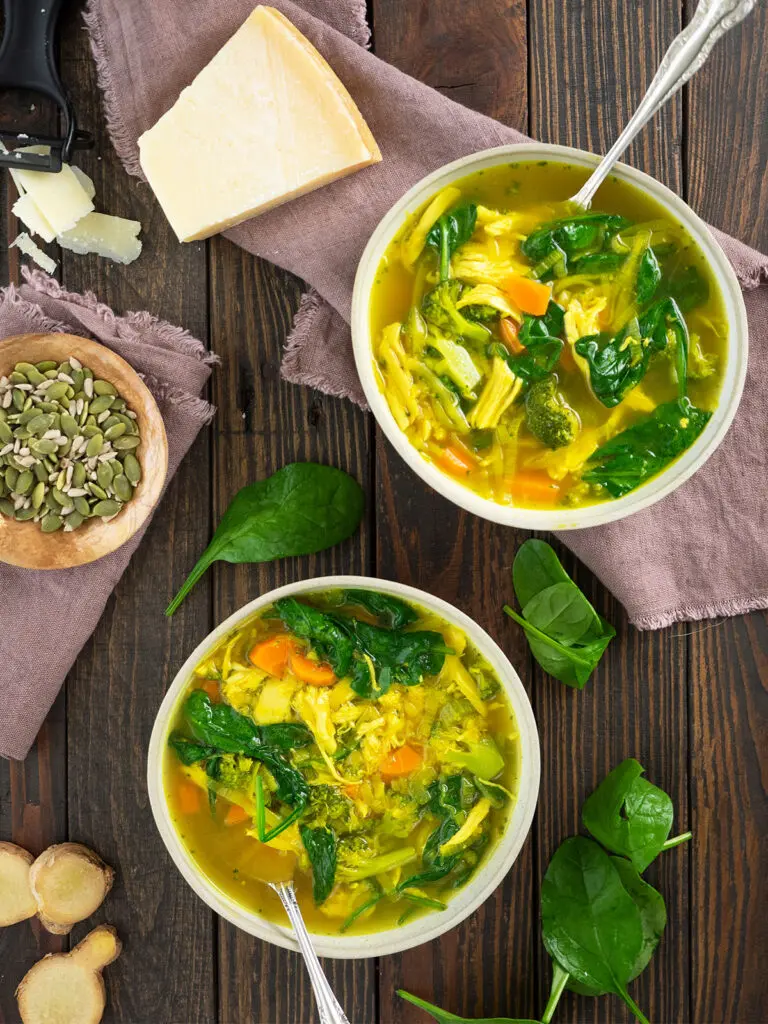
The Soup's Immune Supporting Ingredients

- Leek: Use the white part only, finely sliced. Contains both vitamin C and E.
- Celery: If you remove the strings from the celery you will also be removing some of the dietary fibre. But it all comes down to personal taste (I remove them). Contains Vitamin C, and is a good source of dietary fibre.
- Spinach: Baby spinach contains beta-carotene and Vitamin C, and is a good source of dietary fibre.
- Turmeric: Dried ground turmeric, but if you can source fresh please use it. A good source of beta-carotene, Vitamin C, and Zinc.
- Lemon: Zest is only used in this recipe. Lemon zest is high in Vitamin C and a small amount of beta-carotene.
- Chicken Stock: Homemade and low salt if you can, but store-bought is totally fine. In general chicken stock is a good source of Vitamins C and E, plus a touch of zinc.
- Olive Oil: Use a light tasting olive oil.
- Broccoli: Contains Vitamins C and E, beta-carotene, and dietary fibre.
- Ginger: Either use freshly grated ginger root or grated ginger from a jar. Packed with gingerol, a compound that has antioxidant properties to help support your immunity.
- Carrot: Rich in beta-carotene and dietary fibre.
- Garlic: If you can't find fresh garlic, you can substitute crushed garlic from a jar. Packed with Vitamin C and allicin, an oily chemical compound found in garlic that packs a superfood punch
- Chicken: Use lean chicken breast which is low in calories but high in protein and a good source of zinc.
How to make Ginger Chicken Soup
Place chicken stock and 2 cups of water in a medium size pot. Add chicken and bring to the boil.
Reduce to a gentle simmer until the chicken has cooked through.
Remove poached chicken from the pot and set aside.
Strain chicken stock through a fine mesh strainer and muslin into a large jug. Set aside until needed.
Once chicken has cooled shred and set aside until needed.
Add carrot, celery, and broccoli to the dutch oven. Continue sautéing for a further 5 minutes, do not brown.
Then add ginger, garlic, and turmeric to the sautéing vegetables. Stir through and continue to cook until fragrant.
Pour reserved stock into the dutch oven and stir well.
Bring to a simmer, cover with a lid and cook for a few minutes until vegetables are tender.
Stir through soup and serve once the spinach has wilted.
Serve ginger chicken soup with a grating of parmesan or sprinkle of toasted sunflower and pumpkin seeds.
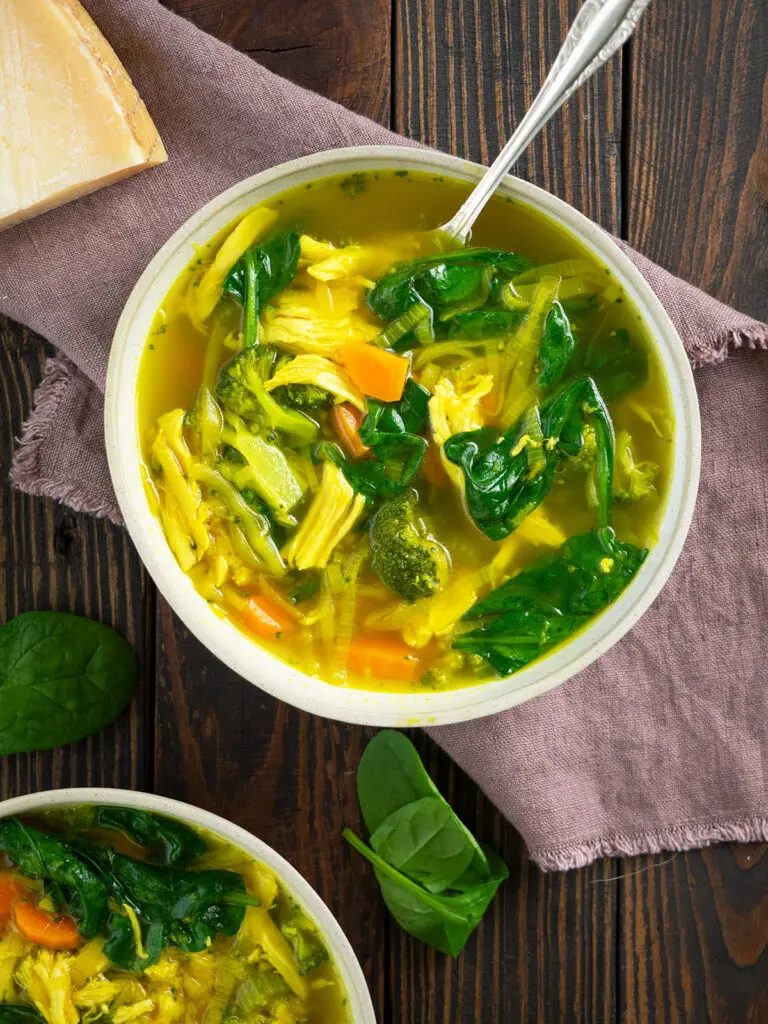
Printable Recipe
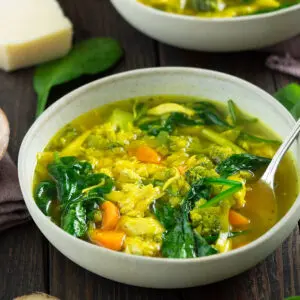
Ginger Chicken Soup
Ingredients
- 1 litre (32 fl oz) chicken stock
- 500 mls (17 fl oz) water
- 2 chicken breast (400-425g / 14-15 oz)
- 2 tablespoons olive oil
- 1 leek | white part only finely sliced
- 2 carrots | medium dice
- 3 celery stalks | medium dice
- 100 grams (½ head / 3.5 oz) broccoli | coarsely chopped
- 1½ tablespoons (6 teaspoons) ginger | grated
- 2 garlic cloves | crushed
- 1½ teaspoons ground turmeric
- 70 grams (2 cups) baby spinach leaves
- zest of 1 lemon
Instructions
- Place chicken stock and 2 cups of water in a medium size pot. Add chicken and bring to the boil.Reduce to a gentle simmer until the chicken has cooked through.
- Remove poached chicken from the pot and set aside.Strain chicken stock through a fine mesh strainer and muslin into a large jug. Set aside until needed.Once chicken has cooled shred and set aside until needed.
- Heat oil in a large Dutch oven over medium heat. Add leek and sauté until soft, but not browned.
- Add carrot, celery, and broccoli to the Dutch oven. Continue sautéing for a further 5 minutes, do not brown.
- Then add ginger, garlic, and turmeric to the sautéing vegetables. Stir through and continue to cook until fragrant.
- Pour reserved stock into the Dutch oven and stir well.Bring to a simmer, cover with a lid and cook for a few minutes until vegetables are tender.
- Once the vegetables are tender add shredded chicken to the ginger chicken soup and mix through.
- To finish add baby spinach and lemon zest.
- Stir through soup and serve once the spinach has wilted.Serve ginger chicken soup with a grating of parmesan or sprinkle of toasted sunflower and pumpkin seeds.
Oven Temperatures
All oven temperatures are fan forced.
Measurement Notes
All measurements are Australian metric standard. All measures are level, and cups are lightly packed unless specified. 1 teaspoon = 5ml / 1 tablespoon = 20mls / 1 cup = 250ml /4 teaspoons = 1 tablespoon.
Recipe Notes
- 1 teaspoon equals 5ml
- 1 tablespoon equals 20 ml (Nth America, NZ & UK use 15ml tablespoons)
- 1 cup equals 250ml (Nth America use 237ml)
- 4 teaspoons equal 1 tablespoon
NUTRITIONAL INFORMATION
The recipe's nutritional information is an approximation based on an online calculator. It is meant solely for reference purposes. If you're looking for precise details, be sure to double-check with your own research.


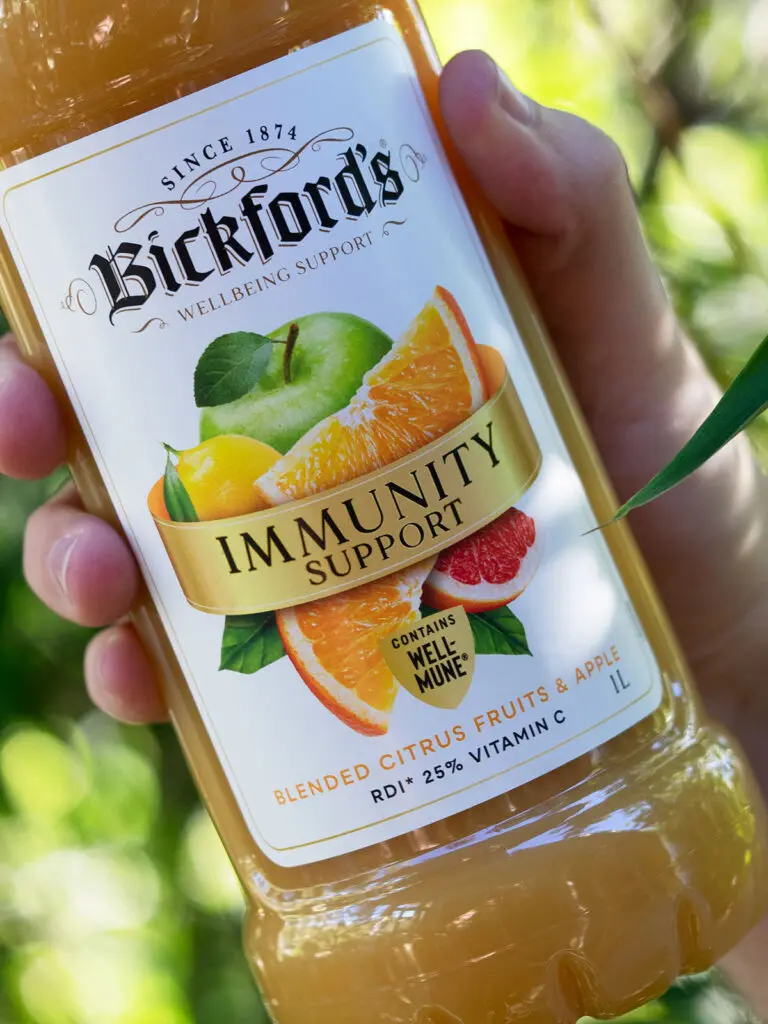
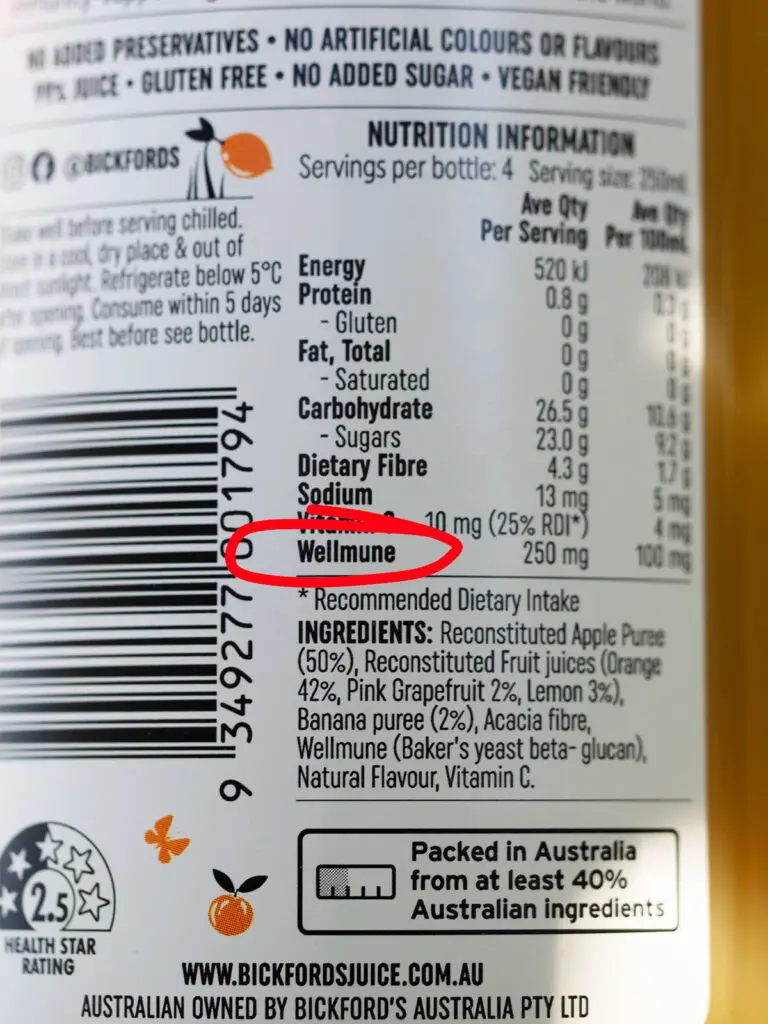
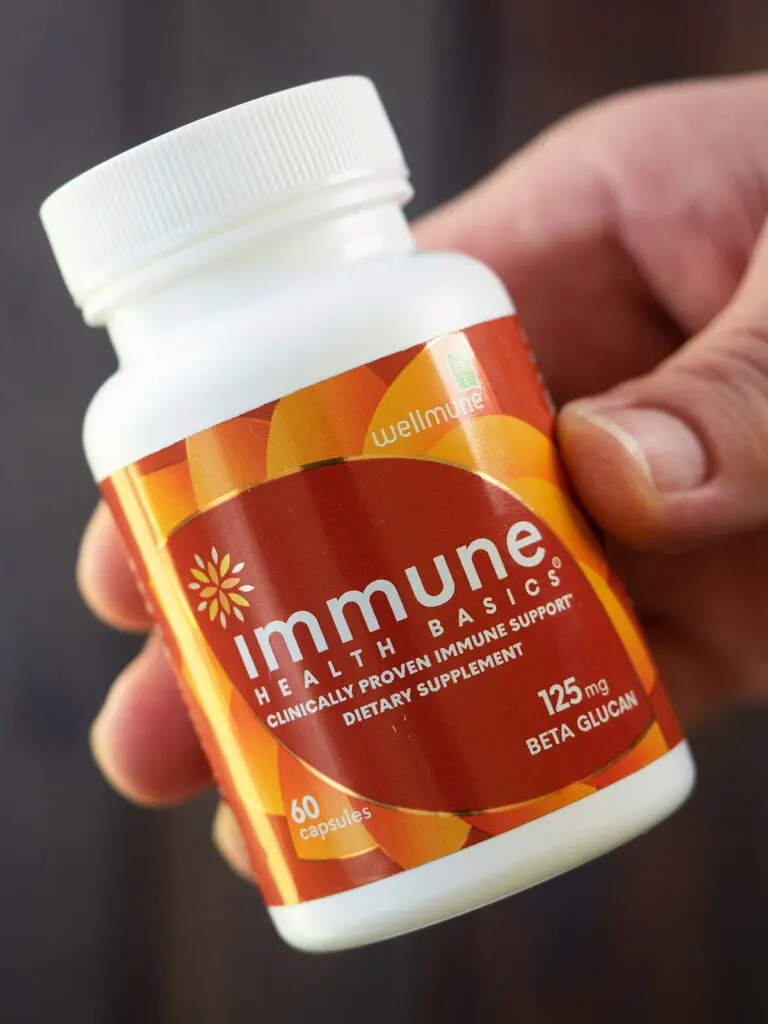
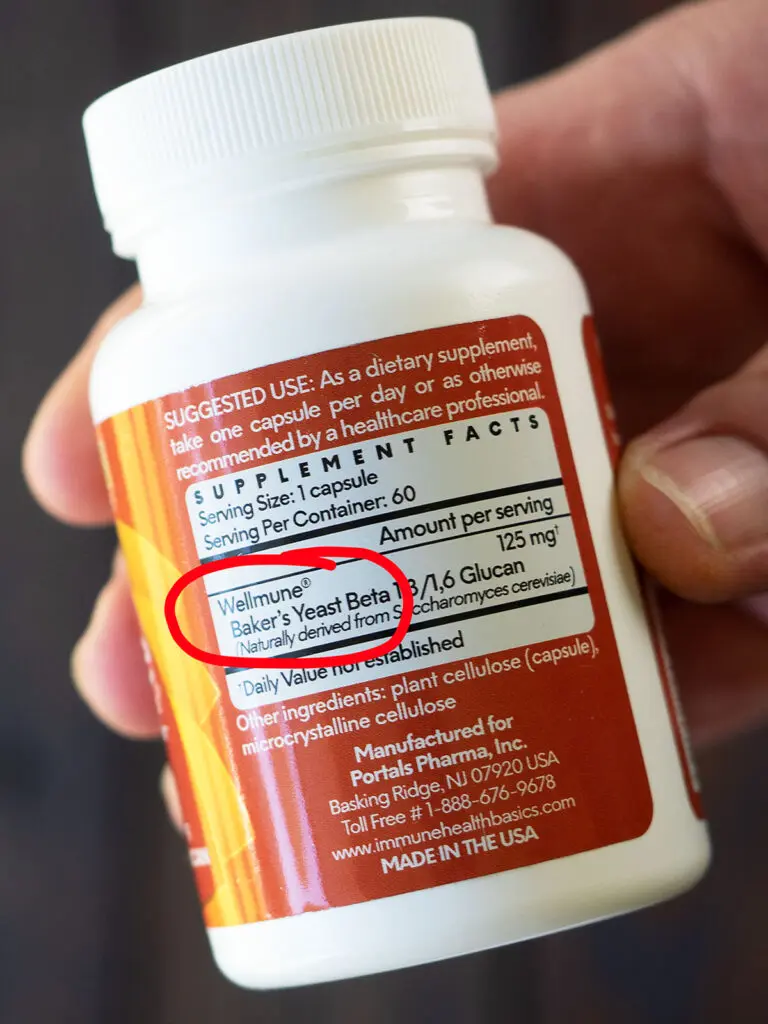
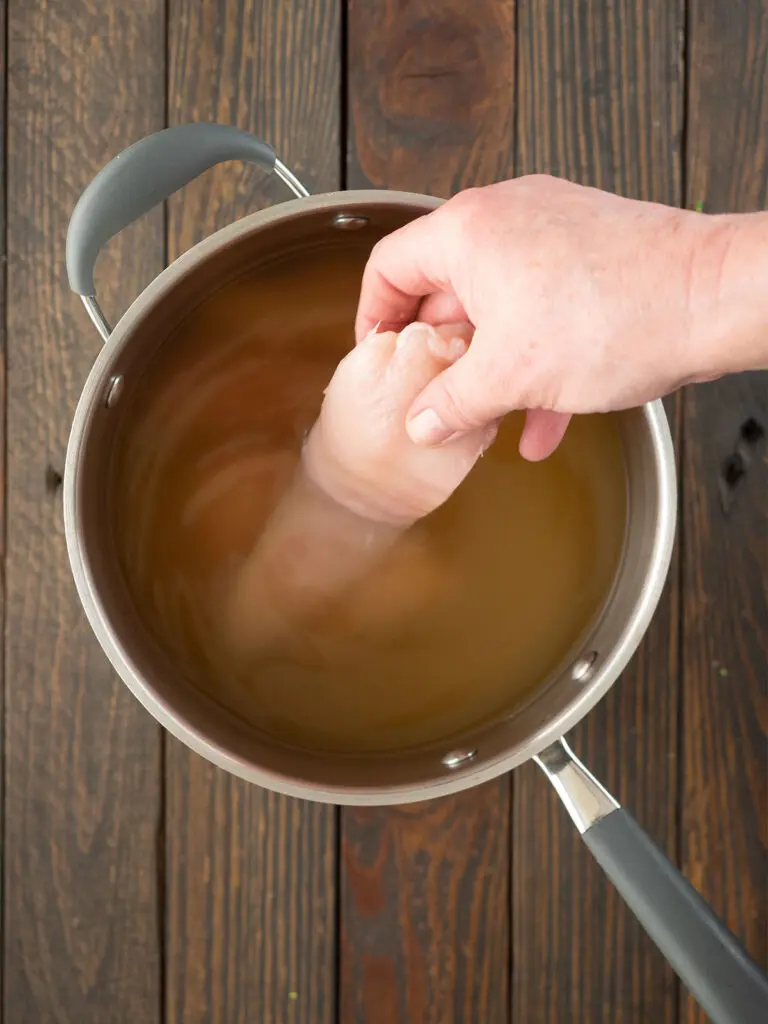

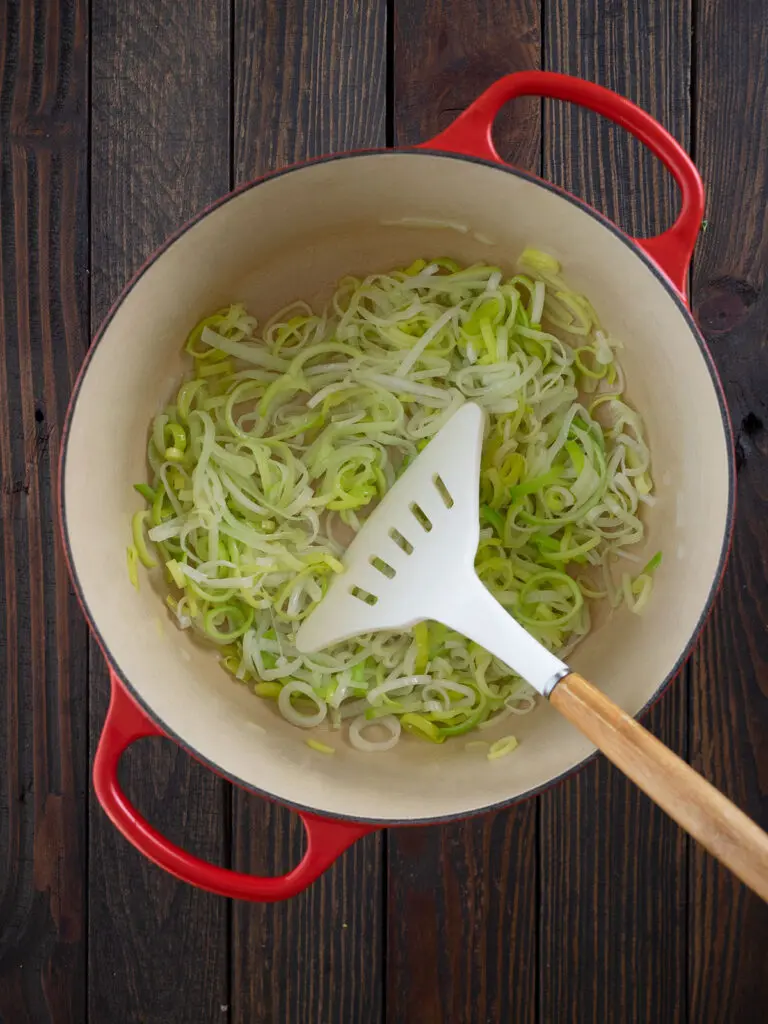
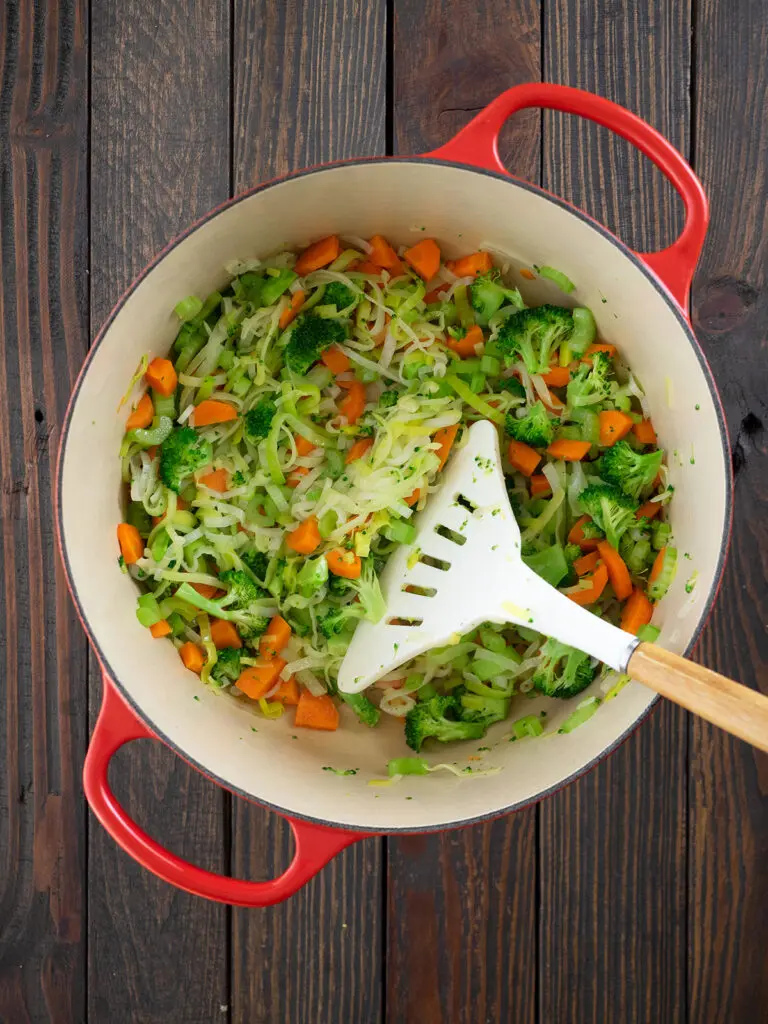
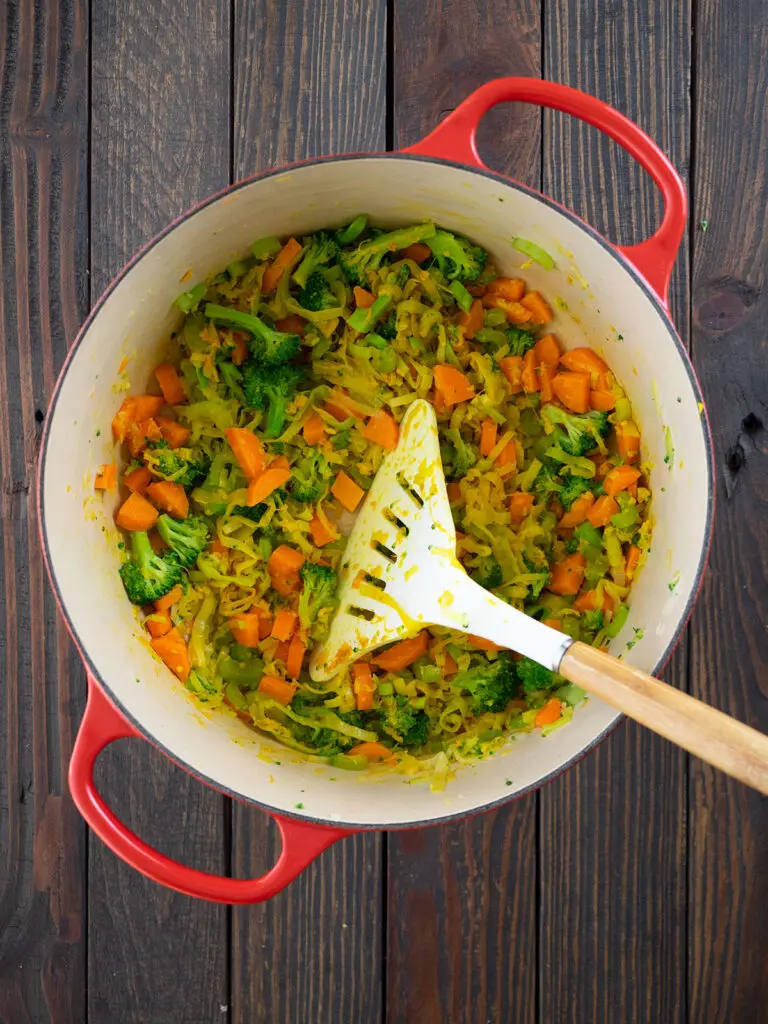
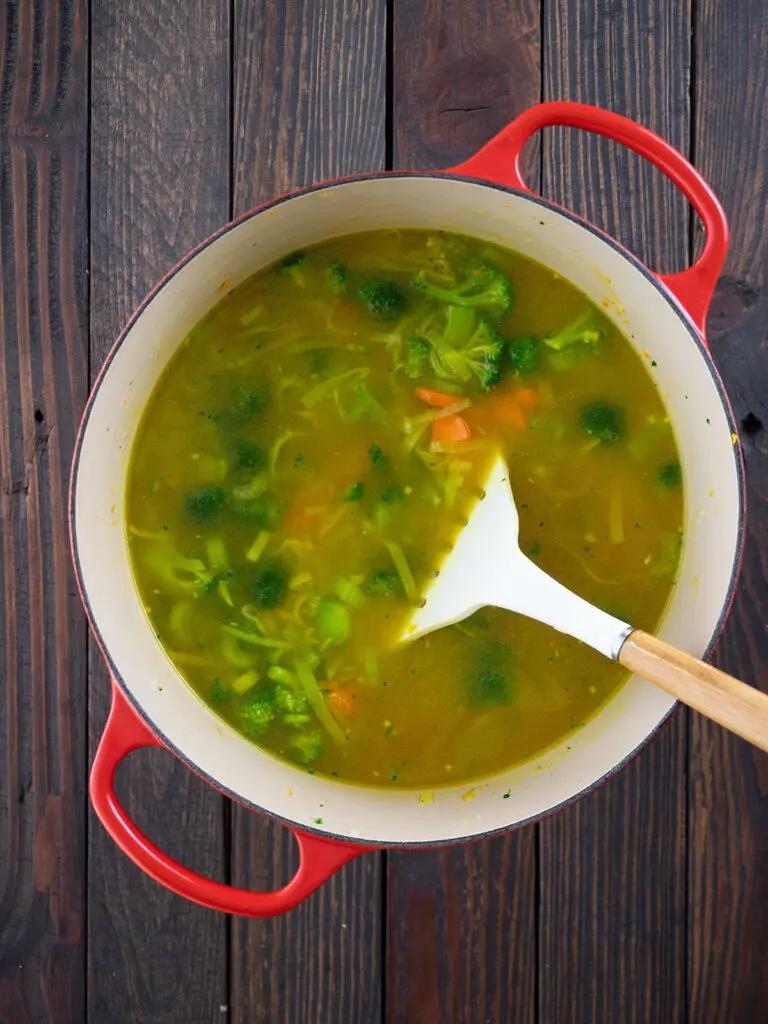
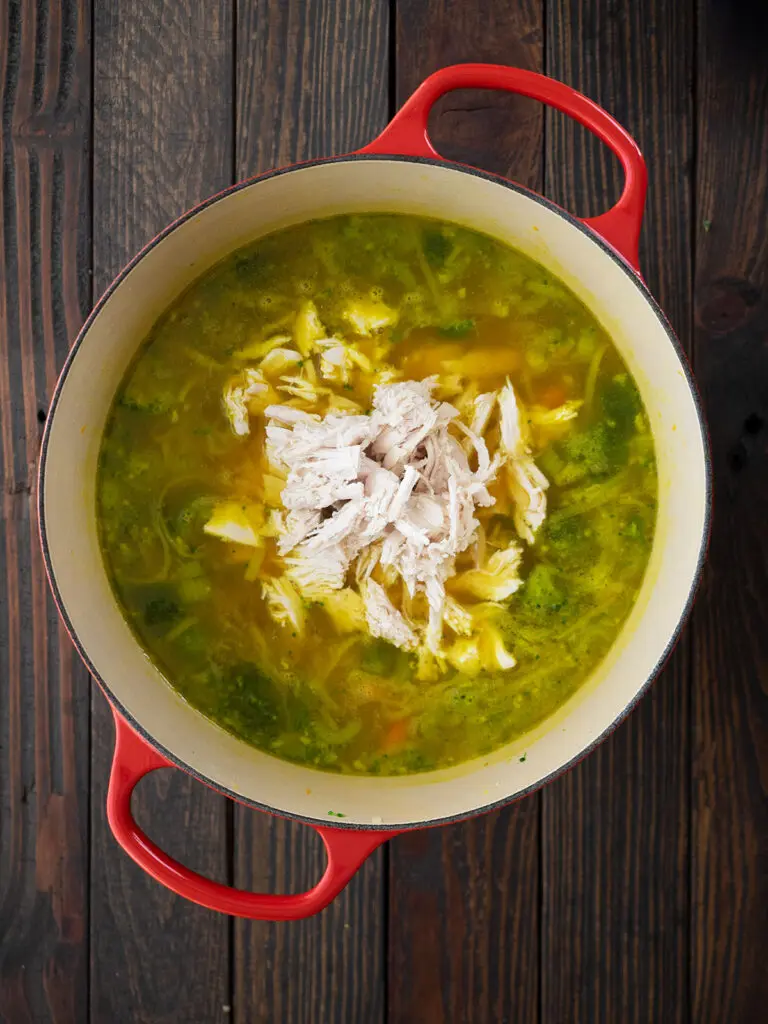
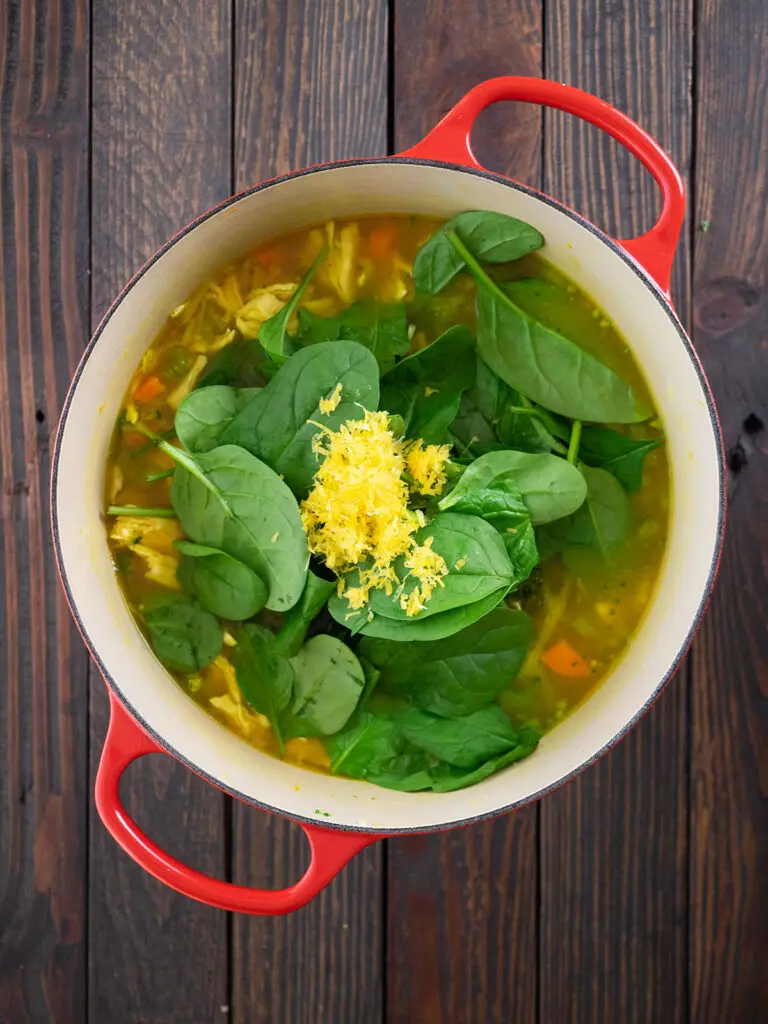

Cathy
A wonderfully belly warming soup! I love ginger and of course chicken. The only thing I'm going to change next time is instead of breasts, I'll use thighs. Of late the quality of chicken breasts is not so good. They get too tough in liquid. At least the stores I shop in seem to have old rooster breasts, LOL! Just the same the soup was extraordinary, as quoted by my friends.
Sara McCleary
Hi Cathy,
I really appreciate your comment regarding chicken breasts. I thought it was just me!! What is going on?
Also thrilled the soup was a hit 🙂
Cheers, Sara
Kerry
Unsure about total chicken required
measurement in grams. Sounds yummy
Sara McCleary
Hi Kerry
Apologies for that, I have added the gram weight next to the oz weight. As per the recipe use 2 chicken breast fillets. The weight is purely for a size indication and does not have to be exact. As you know you can get tiny fillets and ones almost the size of your head.
Hope you enjoy the soup if you end up making it.
Cheers, Sara